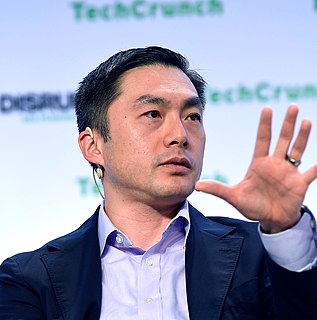A Quote by Pierre Omidyar
You can invest in companies, you can help grow companies, you can be a venture capitalist - and be a philanthropist at the same time.
Quote Topics
Related Quotes
When the trust is high, you get the trust dividend. Investors invest in brands people trust. Consumers buy more from companies they trust, they spend more with companies they trust, they recommend companies they trust, and they give companies they trust the benefit of the doubt when things go wrong.


































